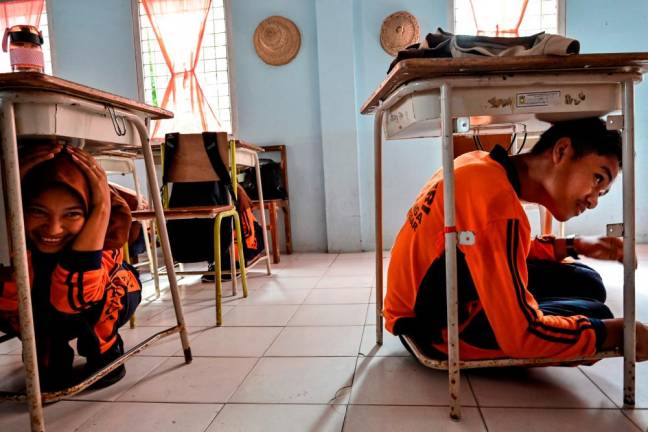THE entire discourse over immunisation vaccination for children in Malaysia is baffling. It’s a cyclical conversation that crops up following cases of illness among children, and frankly it’s about time the talking stops and the doing starts.
When the Ministry of Health recently announced its intention to propose mandatory immunisation following cases of diphtheria in Johor Baru, old headlines resurfaced with the usual anti-vaccination arguments.
But if you look back over the years, we’ve come a long way from when concerns first arose.
The common concerns on our side of the world are that vaccinations cause autism, come with dangerous side effects, and breach religious and ethical lines. There are both proven and unproven theories here, so let’s talk about each one.
Until today, there is the belief that vaccines can cause healthy children to have autism.
That has never been proven; in fact, research has shown that the few studies suggest the link are critically flawed.
The 1998 pioneer paper linking autism to the Measles-Mumps-Rubella (MMR) vaccine by Dr Andrew Wakefield and his colleagues was withdrawn by The Lancet in 2010, and last year the Lab Medicine retracted a similar paper by Bernard Rimland and Woody McGinnis first published in 2002.
So no, there’s no proof vaccines cause autism but yes, vaccines can certainly come with side effects. That, however, is also the case for any medicine. There will always be an element of risk, but the probability of life-threatening reactions is low as statistics have shown. Surrounding moral and religious issues, personal research is necessary.
In Malaysia, the National Fatwa Council and Health Ministry have stated that all government-issued vaccines are halal. The rotavirus vaccine, for severe diarrhoea, contains porcine DNA but is only available at private clinics.
Other major religions such as Christianity, Buddhism and Hinduism generally do not oppose the use of vaccinations, but there are pockets of people who have concerns.
In my opinion, faith and ethics should be unselfish, encouraging the greater good of humanity whether it be for peace, unity or health.
Vaccines are one of the most researched fields in medicine, and dozens of studies have shown that they are indeed the safer choice for our children’s health and well-being. According to Unicef, seven major diseases, including smallpox and polio, are now controlled because of vaccination.
Many of us rely on doctors and medical drugs for our overall health, yet at times demand unreasonable guarantees that simply do not yet exist. It is ironic to question the legitimacy of copious pro-vaccine research by experts but herald the research we do ourselves, mostly through the internet and social media.
As a Malaysian woman who plans to have children of her own one day, my plea to parents is this: get your children vaccinated. The benefits far outweigh the risks, and the vast majority of side effects are far better than contracting these diseases any day.
I am vaccinated, but I didn’t have the perfect experience. At 12 years old, I developed a hard-to-miss keloid at the injection site after receiving the Bacillus Calmette-Guerin (BCG) vaccine against tuberculosis. To this day, I experience stinging pain whenever pressure is applied on the area.
But I believe my parents made the right choice in choosing vaccines, along with their accompanying risks. It was a load off their mind knowing I was immune to life-threatening diseases throughout my childhood, and eventually became a load off my mind too.
A long-term outcome of the widespread use of vaccines is the potential eradication of these diseases completely, resulting in a healthier world for future generations.
As long as we remain divided, we stand at risk of encountering new strains and mutations of the diseases we should long have had under our control.
If our ultimate goal is a sustainable future, vaccination is the way to go.
Comments: letters@thesundaily.com










